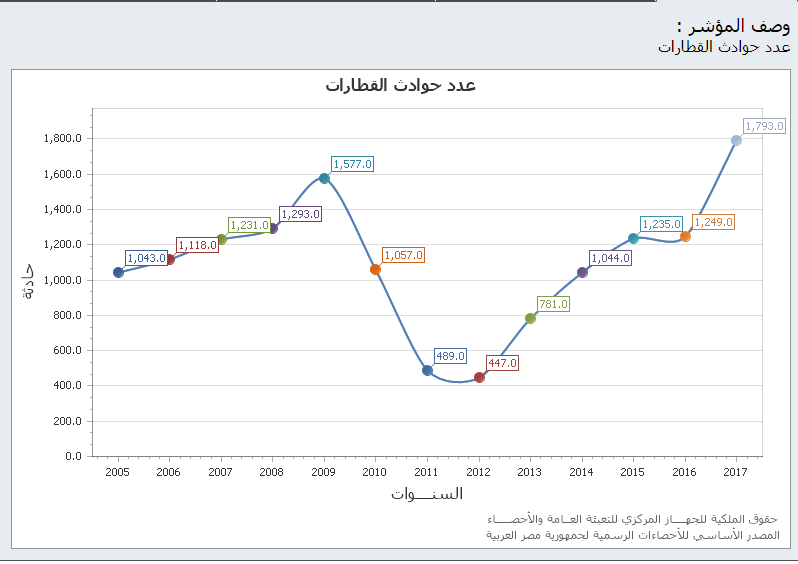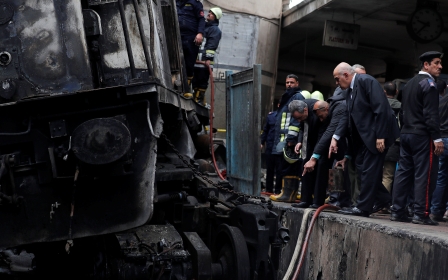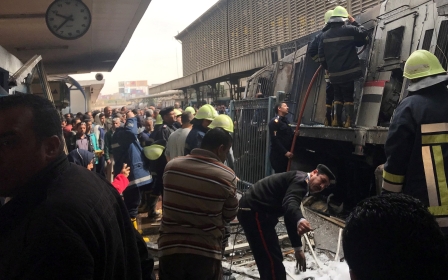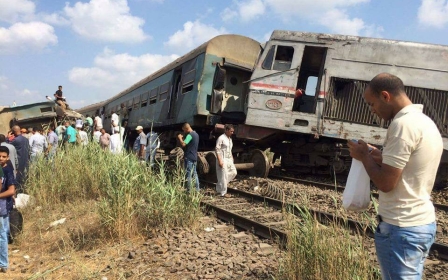Egypt's government under fire for Cairo train wreck as death toll climbs
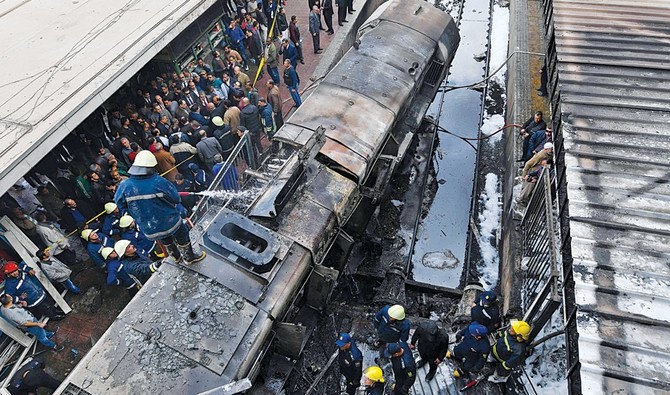
Egypt's government has been acting fast to diffuse a public outcry over a deadly train crash that killed at least 22 people on Wednesday, leaving the families of victims awaiting DNA results to identify corpses charred beyond recognition.
Prime Minister Mostafa Madbouly accepted the resignation of transport minister Hisham Arafat shortly after the incident, which occurred at the Ramses station, Cairo's main train station.
Health minister Hala Zayed said on Thursday that the death toll had risen to 22 after two more people died of their injuries, including an ambulance driver, according to the state-run Ahram news website.
Zayed was quoted as saying that of the 26 patients who remain in hospital, 10 are in a serious condition.
Six were said to be in a grave situation from burns after the train, moving at high speed without its conductor, slammed into a barrier before exploding as it collided into the platform, the minister said.
New MEE newsletter: Jerusalem Dispatch
Sign up to get the latest insights and analysis on Israel-Palestine, alongside Turkey Unpacked and other MEE newsletters
The locomotive went in motion after its conductor abandoned it to quarrel with a colleague, without turning the engine off, Zayed was quoted as saying.
Zayed said on Tuesday that most of the dead are unidentifiable.
Conductor takes responsibility on talk show
The conductor of the train took full responsibility for the incident during a brief interview on a popular pro-government talk show late on Wednesday.
"I'm sorry. There was a mistake, but it was certainly unintentional," Alaa Fathi said when asked to address the audience.
Fathi said if he had turned off the train it would have stopped and the accident could have been prevented.
"I am sorry to everyone, and to the families of the victims, and I'm ready for any punishment that would gratify them," he added.
Fathi's confession and claim of responsibility comes amid severe criticism on social media of the government of President Abdel Fattah el-Sisi over the deaths.
Critics say the president has pumped billions of dollars into mega-projects such as new canals and capital cities, which many see as unnecessary, while neglecting a rundown railway system that often experiences over a thousand accidents a year.
A train engineer working at Ramses said full responsibility for the crash falls on the negligence of the conductors.
"I don't know why the minister had to resign. This is purely the misconduct of the conductor, and no one else's fault," he said in an interview, asking not to be named as he was not authorised to talk to the press.
Others recalled comments made by Sisi in 2017, rebuking suggestions by the now-resigned minister Arafat to invest 10 billion Egyptian pounds ($570m) in revamping the railway network.
"You tell me to spend 10 billion on technical and electrical issues, but if I put those 10 billion in a bank, I can make 1 billion pound in interest, or 2 billion at the new rate," Sisi said at the time to an audience of ministers and other army generals.
Outspoken actor Khaled Abu al Naga tweeted on Thursday: "No trains in the civilised world today operate without brakes that turn on before collisions. Our government with military leadership won't hesitate to spend on submarines and presidential jets for Sisi while all promises of developing debilitated train system and citizens' safety that is put at risk, are not priorities for those failures. It is time for them to go."
Train accidents are a common occurrence in Egypt, claiming dozens of lives every year.
According to Egypt's Central Agency for Public Mobilization and Statistics, the number of train accidents reached 1,793 in 2017, the highest rate in at least 12 years, and a 44 percent surge from 1,249 deaths in 2016.
The frequency of train accidents in the Arab world's most populous country had been declining starting 2009, but started to rise again in 2012.
However, this accident comes amid parliamentary discussions over constitutional amendments that would give Sisi unprecedented authority, as well as extend his rule to 2034.
Sisi, who is in his second year of his second four-year term, is accused by critics of overseeing the worst period of human rights abuses in the country's modern history.
The accident also comes as protests have gripped Sudan for months and calls of political reforms have driven people to the street in Algeria.
Middle East Eye delivers independent and unrivalled coverage and analysis of the Middle East, North Africa and beyond. To learn more about republishing this content and the associated fees, please fill out this form. More about MEE can be found here.


